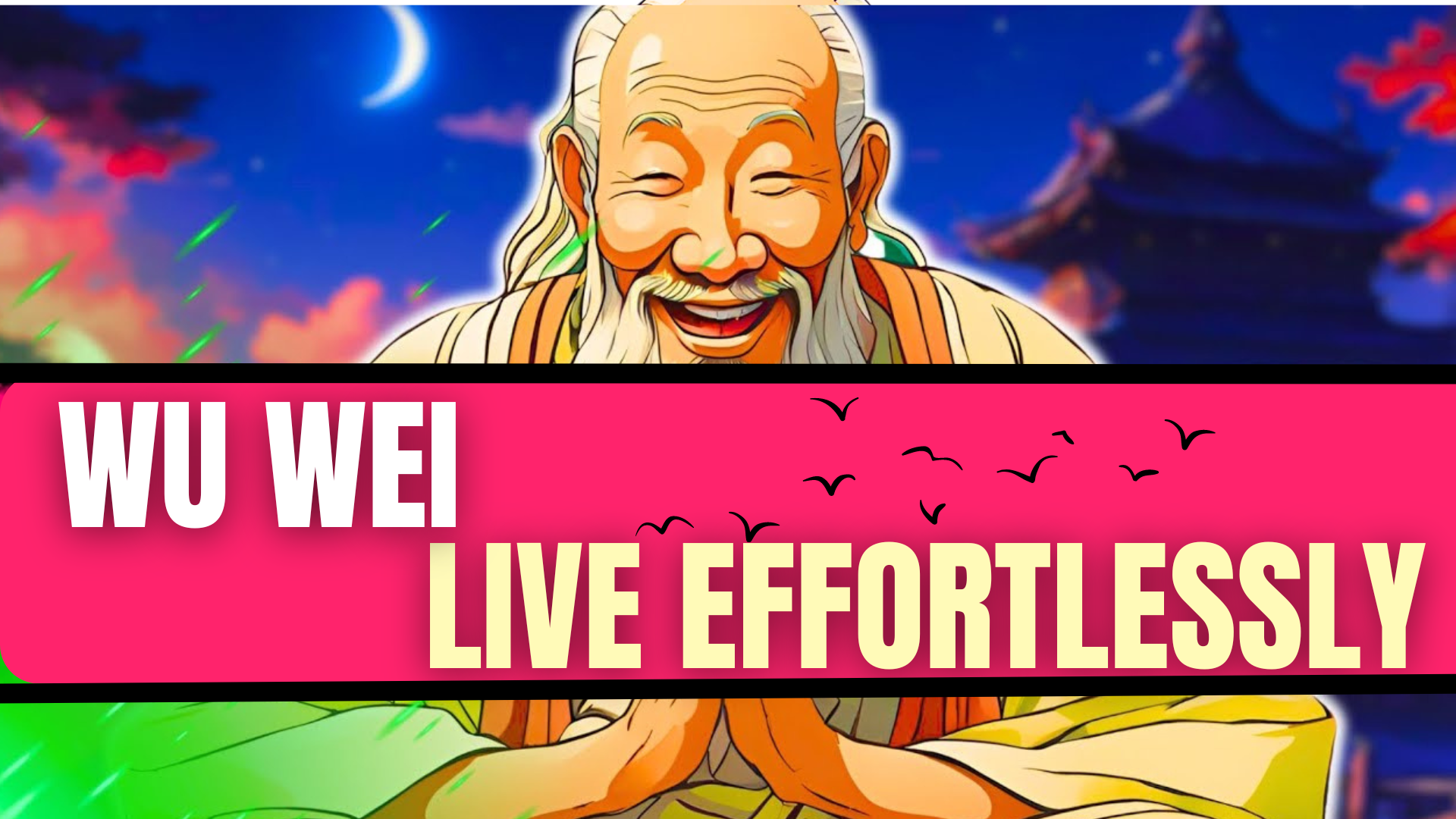I spent years of my life struggling with the pressures of society, stressed about making the bills, trying my damndest to become what I considered to be a person of high regard, and keeping up with the Jones’, which, frankly, I was never particularly good at. And then I heard about the wu wei mindset.
Wu Wei is the philosophy of “effortless action”, of doing things without struggle and without desire. It is in many ways the exact opposite of how most people live their lives. We Westerners tend to be results-focused and always striving for more. Oh it’s not our fault, it’s just the way society is. But it needn’t be that way. And if you’ve been looking for a purer, more peaceful way to live your life, then Wu Wei could be just the ticket.
What Is Wu Wei?
Wu Wei is a cornerstone of Daoist philosophy. At it’s core is the idea of “effortless action”, of doing what we need to do but without the fight and without desire. It’s a concept that is mentioned many times in Taoist literature, including in Lao Tzu’s Tao Te Ching.
Sinologist Herrlee Creel defines Wu Wei as an “attitude of genuine non-action, motivated by a lack of desire to participate in human affairs,” and a “technique by means of which the one who practices it may gain enhanced control of human affairs.” It’s about allowing energy to flow through you freely, acting without effort. And if that sounds contradictory, let me share something Rumi once said: “The breath of the flute player; does it belong to the flute?”
There is no direct translation of Wu Wei from Chinese to English, but it has been called “non-action,” “non-doing,” “non-forcing,” and “effortless action.” In the Chinese text Zhuangzi, it is described as “acting without desire.” You might note how wu wei seems similar to mindfulness; both are about being non-judgmentally aware and focusing on our actions rather than on results.
Why Wu Wei Is So Very Helpful


You can probably already sense why wu wei is beneficial. It allows us to live life in the moment, achieving the things we need to achieve but without the struggle. No surprise, then, that research shows that Wu Wei can reduce stress and anxiety [1]. I’ve found this for myself. Sometimes I’ll get too focused on numbers and on goals (my main goal being to get people to take meditation lessons with me…. Ahem….). And when I’m too focused on goals and results I feel stressed. Conversely, when I just go with the flow and work effortlessly, I’m far more relaxed. Plus, I get more done.
Both research and wisdom suggest that wu wei makes us more productive. In philosopher Chuang Tzu’s poem The Need To Win, there is the story of an archer who becomes more and more focused on rewards and as he becomes more reward-oriented his archery gets worse and worse. I think that makes sense. If we are more focused on the reward we are less focused on what we are actually doing, and thereby we impede our performance. This is backed by science.
Research shows that wu wei can improve our performance in sports and other endeavors. This will come as no surprise to fans of sports psychology, because wu wei is similar to the state of flow described by Mihaly Csikszentmihalyi in Flow: The Psychology of Optimal Experience, and a wealth of research has shown that flow improves performance.
Finally, there is even philosophical debate into the value of wu wei in governance. Indeed, in the Spring and Autumn period in China Confucius made Wu Wei an important part of governance, stating that he who leads with effortless action leads for the good of all, not just for themselves, and he described the Wu Wei mindset as the highest of virtues. But for me the absolute number one thing about wu wei is this: It helps us to enjoy the precious moments of our lives.
How To Do/Be Wu Wei
Meditators will be happy to hear that the general practice of wu wei is not dissimilar to mindfulness. Indeed, you’ll find a similar concept in Zen Buddhism, that of Mushin, which Charles Muller describes as “the experience of an instantaneous severing of thought that occurs in the course of a thoroughgoing pursuit of a Buddhist meditative exercise.” As such, many of the techniques of wu wei are similar to that of mindfulness.
To get into the wu wei mindset:
–Let go of ideas of reward and punishment, and instead focus on your actions in the here and now.
–Do what Bruce Lee said and be like water. “Empty your mind, be formless. Shapeless, like water. If you put water into a cup, it becomes the cup. You put it in a teapot, it becomes the teapot. Now, water can flow or it can crash. Be water, my friend.”
–Allow your actions to happen freely. Daoists refer to this as Ziran, of which D. T. Suzuki said, “Living is an act of creativity demonstrating itself. Creativity is objectively seen as necessity, but from the inner point of view of Emptiness it is ‘just-so-ness,’ (ziran). It literally means ‘byitself-so-ness.”
-Practise Taoist Meditation
And that is my little introduction to wu wei. Next, our wu wei meditation.

Leave a Reply